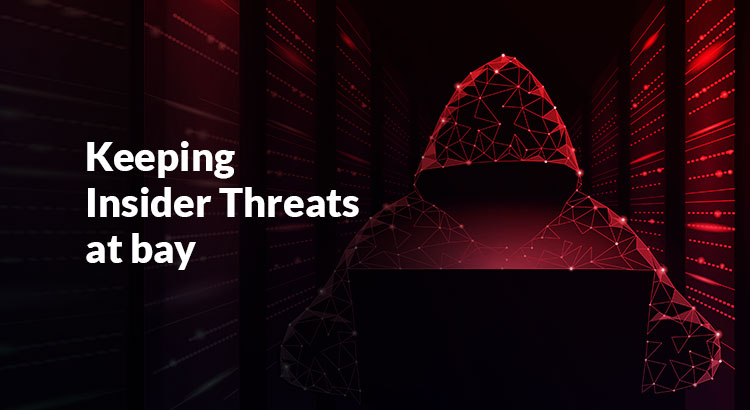The Context
Data breach incidents in 2022 have reached an all-time high with 43% of total data breach incidents happening due to malicious insiders, as per World Economic Forum.
But why? Here’s an explanation.
In the age of digitalization, every organization requires a set of users who are authorized to perform a specific set of sensitive tasks that involve confidential data assets. These users have privileged entitlements, sometimes they are privileged users. As organizations grow, both in terms of workforce and expansion of IT infrastructure, the number of privileged users increases simultaneously.
In the last few years, there is increased adoption of cloud computing, virtualization, SaaS-based applications, and DevOps practices, among other IT practices.
While organizations adopt such new computing, storage, and development methods, they tend to create more privileged users and privileged accounts. So the responsibilities to manage, monitor, and control the privileged tasks also increases.
Secure access management practices for critical systems ensure uninterrupted IT operations. With numerous privileged access control use cases emerging everywhere, the attack surface also expands. Cyber criminals and malicious insiders always target these privileged accounts to get unauthorized access to confidential business information and secrets.
Typically, the attack vector grows when end-users are granted standing privileged elevation, in other words, the absence of privileged elevation on-demand is one of the biggest causes of data breaches. If the ‘Least Privilege’ principle is not followed, it automatically makes organizations vulnerable to a data breach.
Let us discuss five reasons why organizations need privileged elevation on-demand on an urgent basis.
Why is Privilege Elevation on-demand important?
1. To enforce granular control over temporary privileged users: Sometimes, non-privileged users working on Windows, Linux, Unix servers or MacOS are given temporary privileged rights to perform certain privileged tasks. However, quite often, these privileged rights are not revoked even after the completion of the task. As a result, these unnecessary standing privileges invite chances of misuse of privileged rights and subsequent IT misadventures.
ARCON | Privileged Access Management (PAM)’s Privileged Elevation and Delegation Management (PEDM) tool offers a granular level approach to each and every user in the IT environment by granting temporary privileged access rights only on ‘need-to-know’ and ‘need-to-do’ basis. Not only that, it automates the process of temporary privileged access and the rights are revoked immediately after the completion of the tasks.
2. To ensure control over privileged accounts created on an ad-hoc basis: During increased adoption of SaaS applications, organizations tend to create ad-hoc privileged users to perform highly elevated tasks on a number of business-critical applications. With no rules and role-based mechanisms, organizations automatically endanger their critical applications from malicious users.
3. Too Much Liberty (24X7 access) and the need to remove excessive standing privileges: Different users require privileged access to different applications for different purposes at different hours of the day. There are hardly any end-users who might require 24X7 access to the critical systems or applications. To ensure data privacy and data security, organizations must opt for privileged elevation on-demand so that the privileged user can access the required applications only when there is any genuine requirement. Otherwise, too much liberty of anytime access could be counterproductive.
ARCON | Just-In-Time (JIT) Privilege does the job of such restricted access. Once deployed, the privileged user would be automatically prevented from accessing the systems outside the designated hour and domain. It secures the enterprise database from thefts and unauthorized access.
4. To ensure access control in a hybrid work environment: We live in a hybrid work environment, where the end-users access critical systems both on-prem and remotely. In this scenario, how is it possible for organizations to ensure that the right user is accessing the right application at the right time for the right purpose? To ensure a secure and requirement-based critical access control mechanism, organizations must adopt privileged elevation on-demand. It eliminates the chances of unauthorized access to critical systems.
5. Compliance: Many global regulatory standards such as GDPR, FedRAMP, NIST, SOC 2, PCI-DSS, HIPAA, NESA, and regional IT security standards demand a set of IT security controls for every organization, which includes the ‘Least Privilege’ principle, a mandatory requirement. If organizations follow the ‘Least Privilege’ principle, then they can avoid the risks of excessive standing privileges. It can be securely done through privilege elevation on-demand. ARCON’s Just-In-Time (JIT) Privilege solution and Privilege Elevation and Delegation Management (PEDM) tool help organizations follow the ‘Least Privilege’ principle and stay compliant with the regulatory standards.
Conclusion
The practice of on-demand Privilege Elevation addresses the challenges of whom to allow access for which application, for what purpose and when. Serious security concerns, specially over-privileged users or excessive standing privileges, are always there to play a spoilsport. Adequate preventive measures such as Just-In-Time (JIT) privilege and Privilege Elevation and Delegation Management (PEDM) tools ensure that your privileged access environment is safe and secure.

